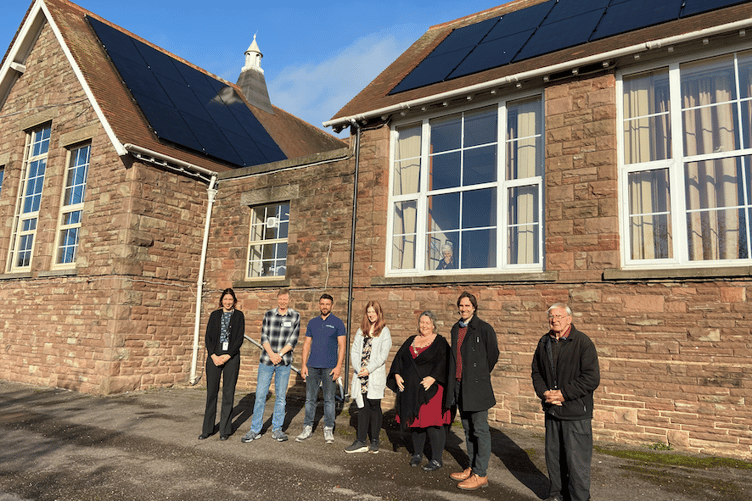LYDNEY Community Centre has begun reaping the benefits of its newly installed solar energy system, officially completed on September 26. In its first month, the centre saved around £100 in energy costs, with an annual target of approximately £1,900 in savings.
Mayor of Lydney, Councillor Tasha Saunders, praised the initiative during a gathering on Wednesday, emphasising its importance for both the environment and the community: "This system is expected to save LCC approximately £1,900 per annum on electricity costs, helping us manage escalating energy bills and keep the centre warm for young and elderly users during winter."
The installation features 36 solar panels, three batteries, and an inverter. The panels generate electricity even on cloudy days, ensuring a reliable energy supply. Any surplus energy produced is stored in batteries for evening use, reducing reliance on the national grid. A centre representative remarked: "We've noticed a significant difference. On well-lit days, the centre doesn’t have to draw from the grid at all, as the stored energy carries us through the night."
While the centre still relies on grid power during darker days, even in less favourable conditions, the savings are substantial compared to soaring energy bills.
The solar installation was funded through various sources, with 80 per-cent coming from the UK Prosperity Fund, provided by the Government via the Forest of Dean District Council and administered by the Gloucestershire Rural Community Council. The remaining 20 per-cent was covered by the National Lottery Community Fund.
Councillor Saunders acknowledged this vital support: “Lydney Town Council appreciates your contribution to the environment and the positive impact on our community, setting an example for others to follow.”
Upgrading the 120-year-old building to a sustainable energy source posed challenges. Concerns existed about how the structure would handle modern technologies. However, a trustee noted: “This building has proven robust. The timbers and materials have held up well, making it more capable of supporting these systems than we initially thought.”
Data shared by the centre highlights the solar installation's positive impact. Martin Stacey, a volunteer, explained: "Since the system was switched on, we've generated 1.1 megawatt-hours of electricity, covering two-thirds of our energy needs with solar power." These results demonstrate the system's efficiency and indicate progress toward long-term energy reduction goals.
The introduction of solar power is part of a broader strategy to improve the centre’s energy efficiency. They've implemented the Hive heating system, allowing remote control of heating, and are working on timers and automated lighting to further reduce energy waste.
Councillor Saunders emphasised the importance of these savings: “By keeping energy costs low, they can maintain minimal hire charges, benefiting all users. Their ultimate goal is to improve their energy rating and work towards achieving net zero emissions.”
Looking ahead, the centre plans to enhance insulation, aiming to increase the current 100mm above the suspended ceilings to the recommended 300mm to minimise heat loss in winter.
Mr Stacey noted: "We’re seeking funding for insulation improvements and will also look into insulating the pipework, another source of energy loss." These upgrades are essential for reaching their sustainability goals.
The centre serves as a vital community hub, providing a warm space for local events and activities. The solar project sets an example for other public buildings in the Forest of Dean, demonstrating that historic structures can adapt to modern energy solutions. As Councillor Saunders stated: "Well done to all the trustees for their continued hard work within Lydney."
In addition to environmental benefits, the financial savings ensure that the centre can continue to operate affordably for the benefit of its many users.





Comments
This article has no comments yet. Be the first to leave a comment.